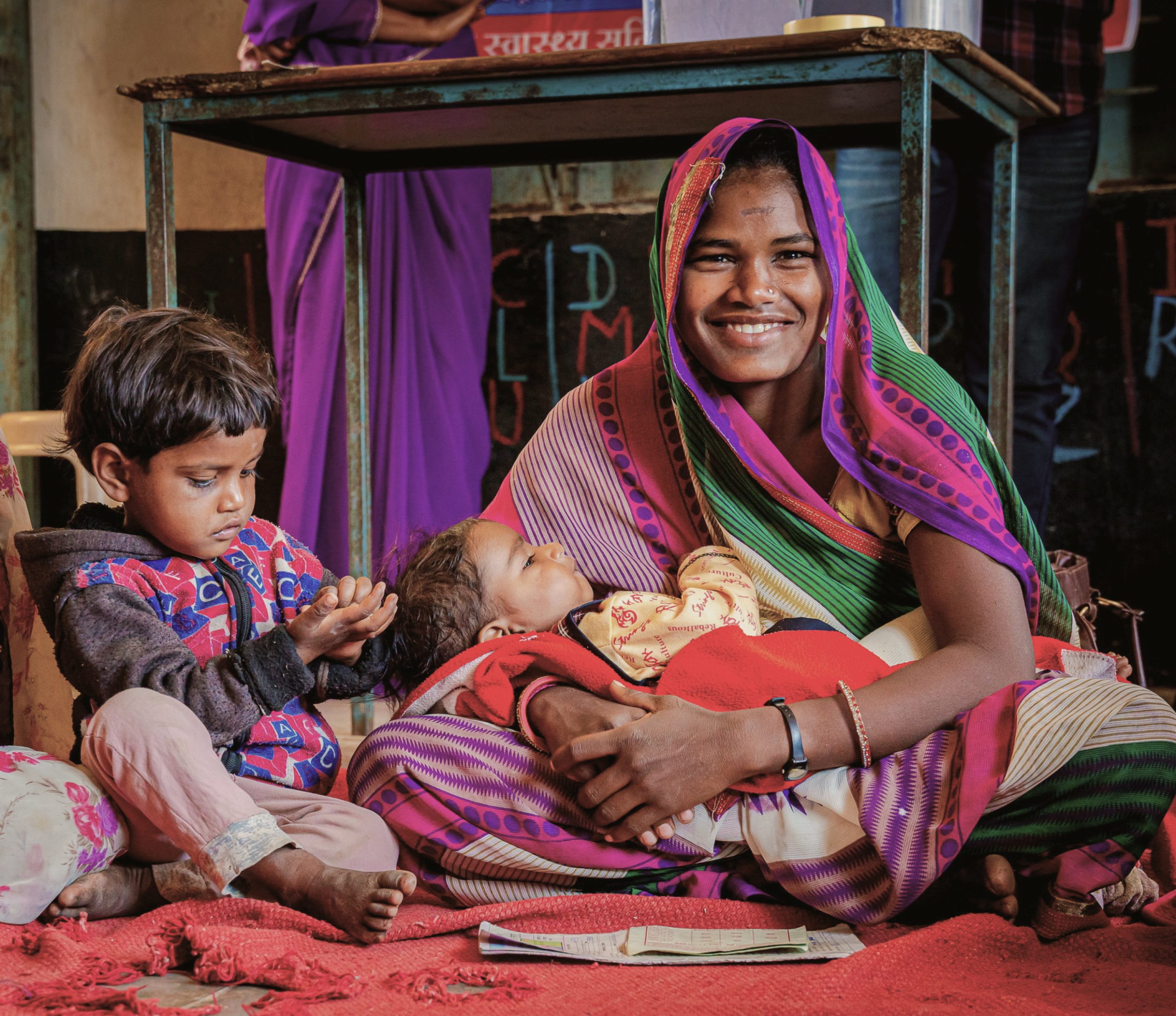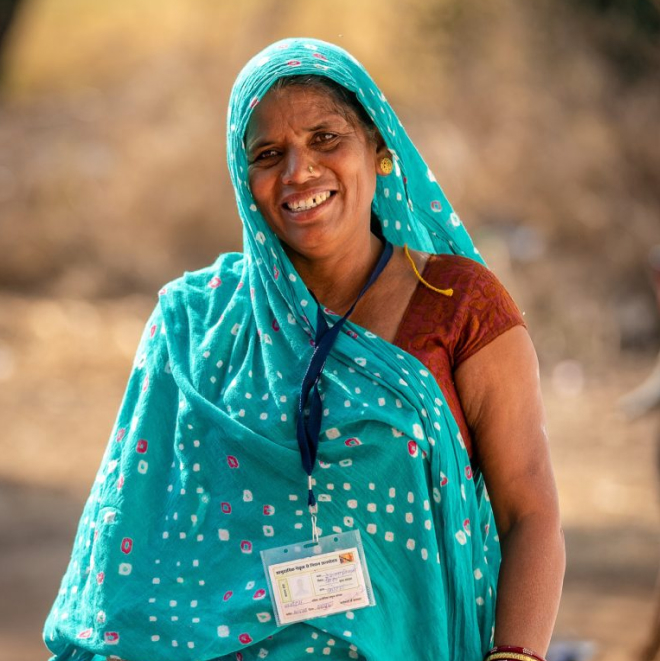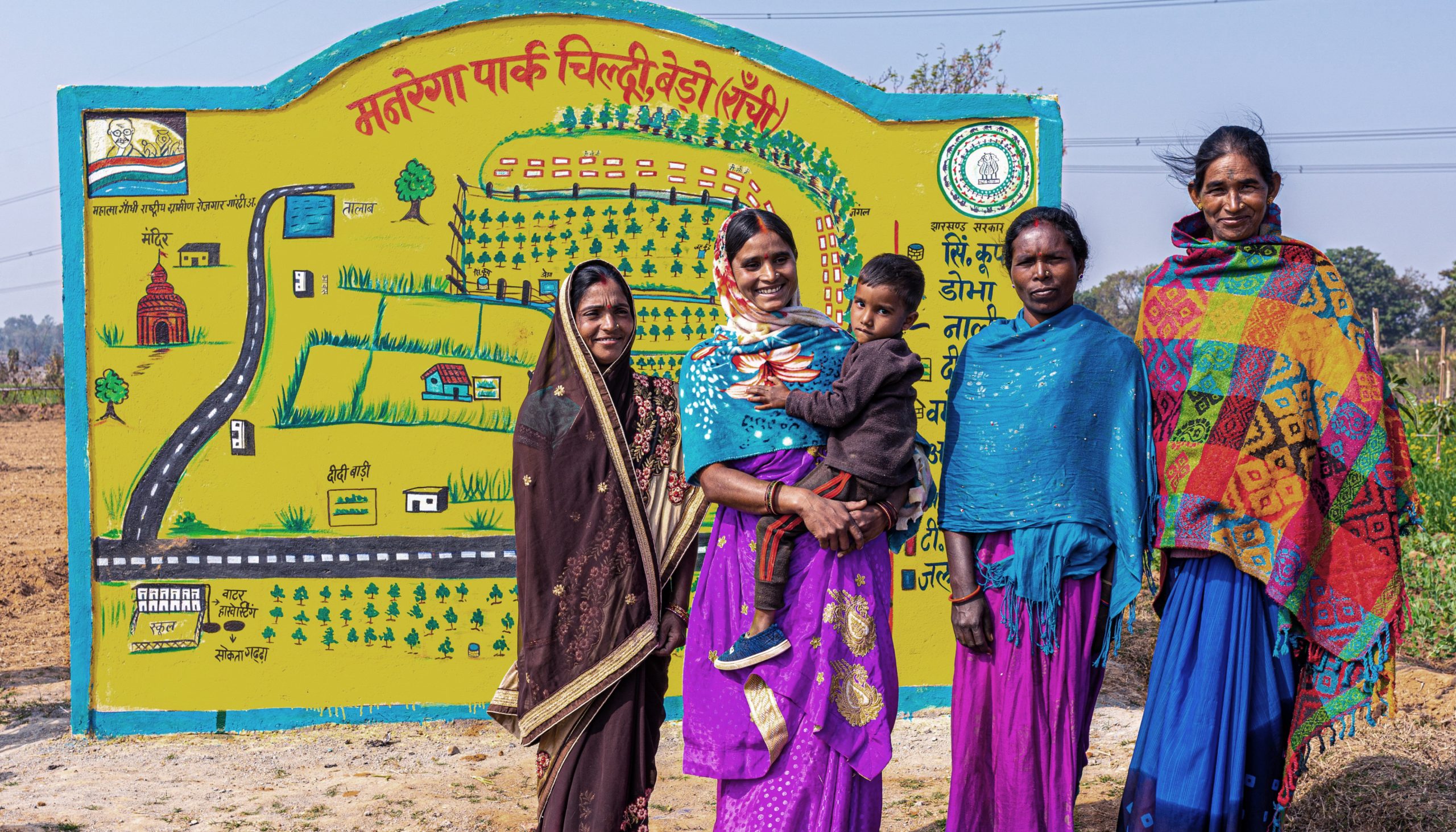Rural poverty in India is marked by limited access to nutrition and healthcare. People are often unaware of the nutritional balance required, never mind limited by availability. Insufficient healthcare facilities further exacerbates the challenge of poor health.

Poor health is a given for children born into poverty – and it starts before they are born. Pregnant women, who are usually undernourished, face many societal challenges – from gender bias and early pregnancies to ignorance and unscientific beliefs. This leads to premature births, underweight babies and maternal mortality.
Those who survive often have low immunity and are susceptible to disease. These children, vulnerable from birth and do not get the nourishment required for growing. They suffer from poor cognitive ability, physical ailments and even death under the age of six.
In addition to an already vulnerable state, they lack proper medical access. Together, this results in a large number of otherwise preventable conditions, diseases and deaths among the rural poor.

Unsurprisingly, malnourished children suffer in adulthood being physically and cognitively disadvantaged compared to healthy children. This means even when presented with the same opportunities, they fall behind and are unable to pull themselves out of the poverty cycle.
We work closely with government agencies and NGOs that run rural healthcare initiatives as we strive to improve the availability of primary healthcare centres with trained staff. We want to raise the threshold of preventive healthcare so that rural Indians can live healthier lives.


We co-create innovative ideas and strategies by partnering with ‘change vectors’ selected from women self-help groups (SHGs). We support the local women leaders in advancing health agendas within their own communities and support their peers in adopting scientific practices for improved health outcomes.


We work with frontline workers in hard-to-reach communities with few resources by enhancing their skills, equipping them with supplies, kits and tools and creating a community coordination system for awareness and delivery of essential health services.


We work with partners and the government to increase awareness and access to public healthcare services for issues related to the mothers, newborns, children and adolescents as well as non-communicable diseases.


We build awareness about the impact climate change could have on health, adopting the ‘One Health’ approach that brings different sectors together to solve the health, productivity, and conservation challenges. We help villagers initiate local action for climate change adaptation by strengthening their Community Based Organisations and Panchayat Raj Institutions. We also help the community find public investments and push policies focused on protecting rural India against climate change.


We work with academia, incubators and private sector innovators to deploy technology-lead innovations for screening, diagnosis and treatment.

Vashni is a part of a self-help group in her village in Madhya Pradesh. As part of a government program to encourage livelihoods, TRI was able to help her get black hens, which are of high value in the poultry industry. Demand for the local black breed, Kadaknath, has surged in recent years as it’s valued for its low-fat, high protein content as well as its medicinal properties.
Vashni Dalia Bamaniya, Sutrati village

Reach us at
TRI Square,
43 Community Centre Zamrudpur,
Kailash Colony Extension,
Behind Hanuman Mandir,
New Delhi,
Delhi 110048
+91 11 2923 1314